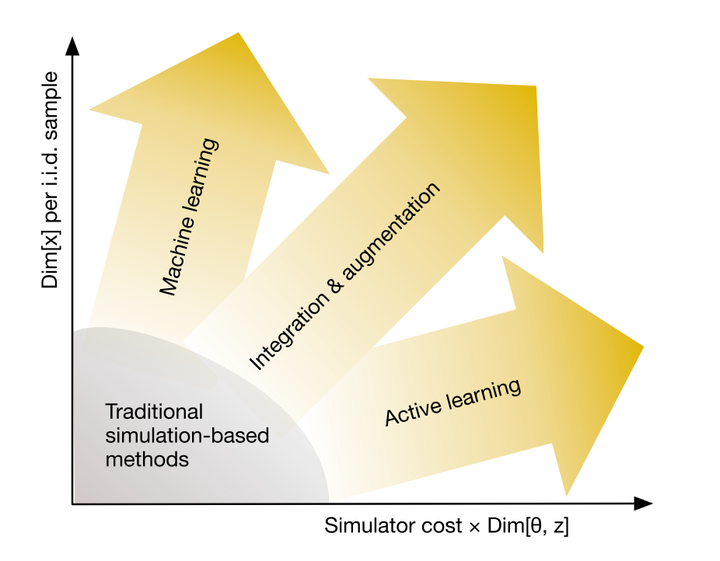 Diagram of likelihood-free inference methods from PNAS 117 (48) 30055-30062 (2020).
Diagram of likelihood-free inference methods from PNAS 117 (48) 30055-30062 (2020).
Abstract
In many scientific fields, ranging from astrophysics to particle physics and neuroscience, simulators for dynamical systems generate a massive amount of data. One of the crucial tasks scientists are spending their precious time on is comparing observational data to the aforementioned simulations in order to infer physically relevant parameters and their uncertainties based on the model embedded in the simulator. This poses a problem because the likelihood function for realistic simulations of complex physical systems is intractable. Simulation-based inference techniques attack this problem using machine learning tools and probabilistic programming. I will give an overview of the problem and explain the application of such methods using examples.